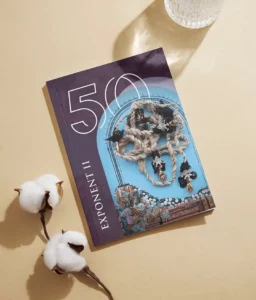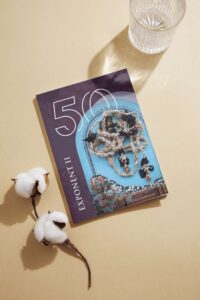With its title sourced from Section 88 of the Doctrine and Covenants, Every Needful Thing is a collection of essays from accomplished women in the fields of science, medicine, mathematics, politics and government, business, psychology, and law who have dared to ask questions which shook their faith while contributing to their chosen fields and ultimately bettering the world. The list of the contributors and their brief resumes at the beginning of this collection is inspiration alone. In addition to an array of professions, Every Needful Thing: Essays on the Life of the Mind and Heart (BYU Maxfield Institute) includes Asian, Pacific Islander, Black, and Indigenous voices.
This collection opens with an essay from Astrid S. Tuminez, which felt like a gentle nudge reassuring me, “See, someone like you is in here too.” Dr. Tuminez was raised in the Philippines, where I was also born and emigrated from at the age of two. Every Needful Thing is organized into five parts, with titles that originate from different verses of D&C 88, but read like the ultimate FAQ readers wrestle with on a regular basis: How do I know God is real? How can I believe in science and Creation? How do I rationalize the messy history of the Church with what I currently believe politically, socially, and spiritually? The world is such an ugly place — where is God amidst the suffering? Why do I see such few representations of myself in the Church and its leadership?
The answers to these questions are answered in both satisfying and unsatisfying ways, but even when I found myself arguing with a rationale, it would only take a few pages for the writer to acknowledge their own privilege and/or limitations.
This collection is timely and relevant. While I grimace at most recently-produced art which references the COVID-19 pandemic, the essays acknowledging this significant historical event do so sensitively and with beautiful, specific insight. Lisa Grow is a lawyer whose research focuses on the intersection between law and disasters. Grow’s essay identifies the disaster of the pandemic and openly discusses the frustration she experienced witnessing members of the church questioning and contradicting public health measures while citing conspiracy theories to back their claims, a microcosm of the growing division in the country of how to handle and combat the virus. Humans attribute disasters such as pandemics and even more commonly earthquakes and fires as acts of God. Grow argues that she sees God amidst disaster in the acts of human kindness, compassion, and resilience.
In contrast, the majority of the essays consider ‘evergreen’ topics. I was particularly moved by the writing of women in the fields of science and medicine and their own wrestling with their vast understanding of the earth, biology, and the human body and God’s role in the creation of the universe. As Dr. Dyra N. Krakos writes, “My faith is a complex system. The fragile web of answers from parents, teachers, and Church leaders that sustained my childhood faith could not withstand the shaking of my questions as I grew. As I learned to think critically, I had to build a new system with redundant mechanisms for nurturing faith and spiritual growth in the face of new information and more complex questions. My spiritual identity was ground down and rebuilt again and again. My understanding comes in agonizing incremental steps.”
I look forward to the countless quotes that will be taken from this collection to supplement talks and lessons in the church. I feel a surge of hope seeing this book on my shelf and knowing another volume of completely feminist LDS voices exists for future generations to encourage and maybe answer the deepest and most important questions of their hearts.
Ynna Padilla is a speech-language pathologist who enjoys reading novels, pilates, and surfing




